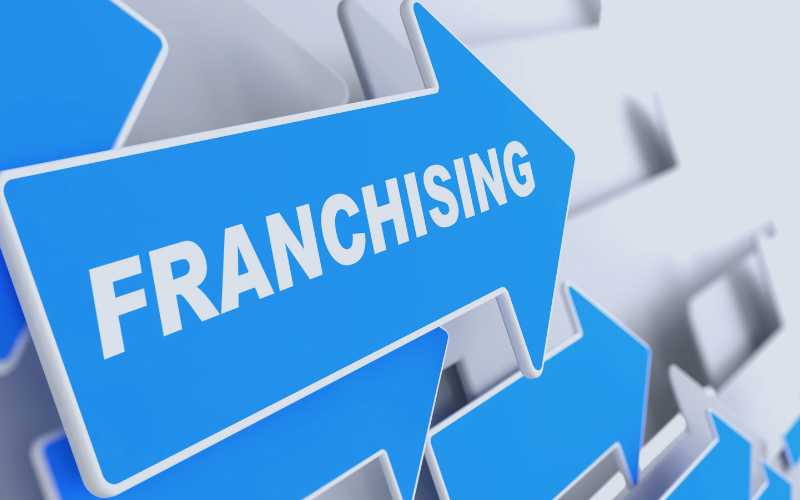As an MBA graduate, the dream of entrepreneurship is real. You want to build a business, apply what you’ve learned, and be your own boss. But when it comes to ETA vs franchising, which path gets you there faster, smarter, and with fewer sleepless nights?
Let’s talk about two of the most popular roads:
- Entrepreneurship Through Acquisition (ETA)
- Franchising
ETA vs franchising both lead to ownership and offer real opportunities. But they’re built for different types of entrepreneurs with different appetites for risk, structure, and support.
FAQs
Entrepreneurship Through Acquisition (ETA) means buying an existing business instead of starting one from scratch. You step into a company that already has customers, employees, and revenue—so you can focus on growth, not survival.
It’s a fast track to ownership but comes with higher risk and complexity. ETA fits entrepreneurs who enjoy problem-solving, leadership, and transforming businesses.
ETA and franchising both lead to business ownership, but the journey looks very different.
*ETA gives you full control, flexibility, and potentially higher returns—but also higher risk and responsibility.
*Franchising offers a proven business model, brand recognition, and ongoing support from the franchisor. It’s a structured path with lower risk, ideal for those who want to run a business without reinventing the wheel.
In short, ETA is for builders and fixers; franchising is for operators who value systems and support.
If you’re looking for stability and predictability, franchising is the safer bet. You’re investing in a tested system with established brand equity, operational processes, and built-in training.
ETA, meanwhile, can be more volatile—acquiring a business means inheriting its strengths and its problems. Success depends heavily on your due diligence, financing strategy, and ability to lead through change.
For MBA grads hungry to apply their skills, both paths can lead to success—but your personality and goals matter most.
Choose ETA if you love strategy, negotiation, and high-impact leadership. It’s perfect for those who want to buy, grow, and eventually exit a business.
Go for franchising if you prefer a roadmap, proven systems, and the backing of a strong brand. It’s ideal for entrepreneurs who want to scale sustainably while minimizing trial and error.
Start by asking yourself three questions:
*What’s my risk tolerance?
*How much capital can I invest?
*What kind of lifestyle and support do I want as an entrepreneur?
Talk to franchise consultants, connect with ETA investors, and speak with current owners in both models. Your best path depends on whether you want independence and high risk (ETA) or guidance and proven stability (franchising).
What is ETA?
Entrepreneurship Through Acquisition (ETA) is all about buying an existing company. It sounds glamorous, and for some, it absolutely delivers. Here’s the value proposition:
- You walk into a business that already has employees, customers, revenue, and systems.
- You skip the startup chaos and move right into operations.
- You can scale quickly if you bring the right skills to the table.
But here’s the catch: ETA is a high-risk, high-reward model. Searching for the right acquisition can take months—sometimes years. It’s a grind. Financing often requires raising money through investors or taking on bank loans.
And when the ink is dry, you inherit every single challenge that comes with that business. Broken systems, low morale, outdated processes, and even poor branding can be part of the deal.
This isn’t for the faint of heart. It’s best suited for entrepreneurs who love complexity, don’t mind chaos, and have strong negotiation and turnaround skills.
What is Franchising?

Franchising offers a more structured, stable, and supportive route to business ownership. You’re not building from scratch. Instead, you’re buying into a proven business model with brand recognition, operational systems, and a franchise network that has your back.
Benefits include:
- A tested business model with streamlined operations.
- Brand recognition that brings customers to your door from day one.
- Built-in marketing and national campaigns.
- Access to training, ongoing support, and even site selection help.
- A franchise system that helps you hire, lead, and grow effectively.
Yes, you’ll pay a franchise fee and ongoing royalties based on your revenue. But what you get in return is immense value: a roadmap, resources, and real support. You also gain instant credibility with lenders, landlords, and customers alike.
Many franchises provide centralized systems for supplies, marketing, employee training, and even customer service—so you’re not just buying a name; you’re buying a way of doing business that works.
ETA vs. Franchising: Head-to-Head

Risk
ETA: Big financial risk. Acquisitions come with debt and operational uncertainty. If the business underperforms or integration goes poorly, your investment is on the line.
Franchising: Lower risk. You’re investing in something already proven. The franchise system provides guardrails.
Support
ETA: Minimal. You’re on your own. Consultants and advisors help during due diligence but disappear once the deal closes.
Franchising: Extensive. Franchisors support franchisees with everything from site selection to ongoing operations, including marketing, hiring, and training.
Stability
ETA: Highly variable. It depends on the business you buy, its existing systems, and how well you integrate.
Franchising: Much more predictable. Established brands come with stable revenue models, loyal customer bases, and systems built for scale.
Growth Potential
ETA: High upside. If you’re experienced and make the right acquisition, you could grow quickly.
Franchising: Steady and scalable. Many franchises offer multi-unit options, making long-term expansion very achievable.
Who’s the Right Fit?

Franchising Fits If You:
- Like structure and defined processes.
- Want to focus on execution, not reinvention.
- Appreciate having experts to call when things go sideways.
ETA Works If You:
- Thrive in ambiguity.
- Have strong skills in leadership, negotiation, and integration.
- Are excited by turning around businesses and creating value through transformation.
For many MBA graduates, franchising offers a safer, more scalable way to achieve entrepreneurial success. It’s not a shortcut—it still requires hustle—but the roadmap is clearer.
Financial Goals and Risk Tolerance
ETA may yield larger returns, but it also means putting a lot more on the line. The financing, the due diligence, the integration—it’s all heavy lifting. You’ll need capital, advisors, and a strong stomach.
Franchising, by contrast, often requires a smaller upfront investment. Yes, there’s a franchise fee and royalty structure, but the path is more predictable. You’re not guessing what works—you’re following a blueprint.
Banks are often more willing to finance franchises because they understand the value of brand equity, franchise systems, and established track records. In the context of ETA vs franchising, this makes franchising especially appealing to risk-averse entrepreneurs.
Long-Term Objectives
ETA: Suits those aiming for fast growth and a high-value exit. It’s a sprint and a marathon rolled into one.
Franchising: Ideal for those seeking sustainable revenue, stable operations, and long-term value. Many franchisees start with one location and grow into multiple units over time.
Owning multiple franchises across different territories or brands can turn into a true business empire.
Why Franchising Might Be the Smarter Play

Let’s be blunt—franchising works for a reason. The playbook is tested. The risks are lower. You’re joining a team with a shared mission.
Franchisees benefit from:
- Brand equity that builds trust fast.
- A franchise system that supports every step of the journey.
- A network of other franchisees who’ve been there and done that.
- Marketing, operations, and even technology tools to support business growth.
Independent business ownership has its perks—but it also comes with isolation, guesswork, and risk. In franchising, you’re still the boss—but you’re not alone.
Next Steps
Not sure where to start?
- Begin with research.
- Reach out to franchise consultants.
- Talk to existing franchisees.
- Attend discovery days.
- Evaluate the business model, marketing strategy, and the company’s culture.
Determine your risk tolerance, financing options, and preferred industry. Decide what kind of support you want—and what kind of owner you want to be.
Franchising isn’t a silver bullet, but it’s a smart, scalable, and proven path to business ownership. When done right, it offers stability, brand power, and a clear roadmap to success.
If you’re ready to explore, start with diligence. Treat this like a professional acquisition. Study the franchise system. Understand the brand. Ask tough questions. Then decide: is this the right concept, the right deal, the right time?
There’s a franchise business out there with your name on it—and it might be the fastest, smartest way to create the business and life you want.
Let’s go build something that lasts.


